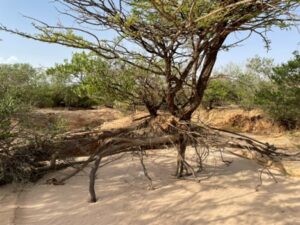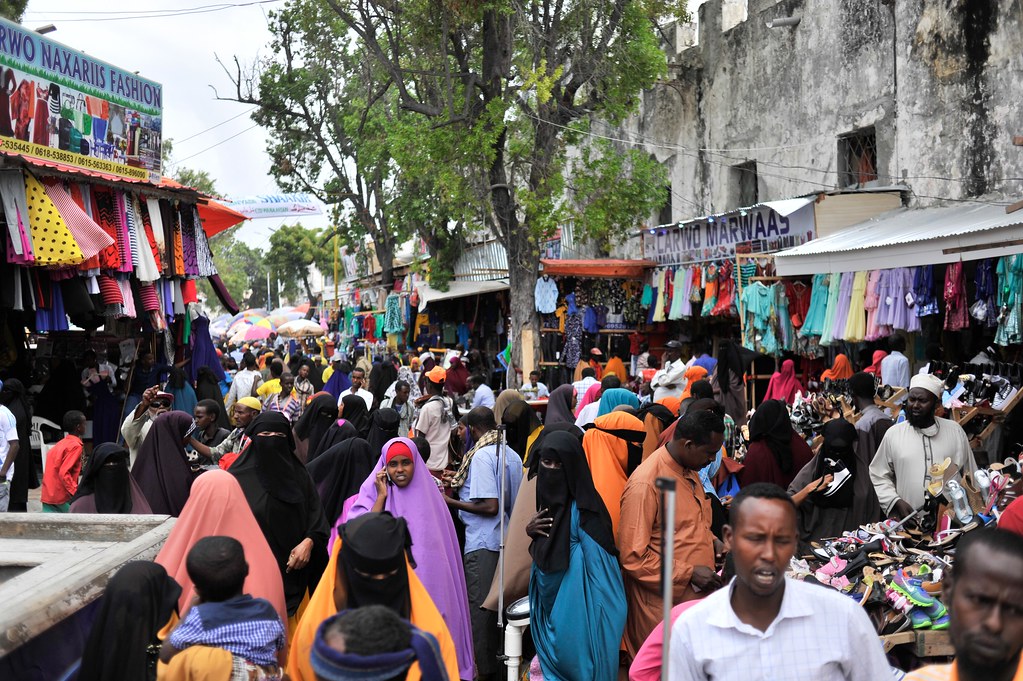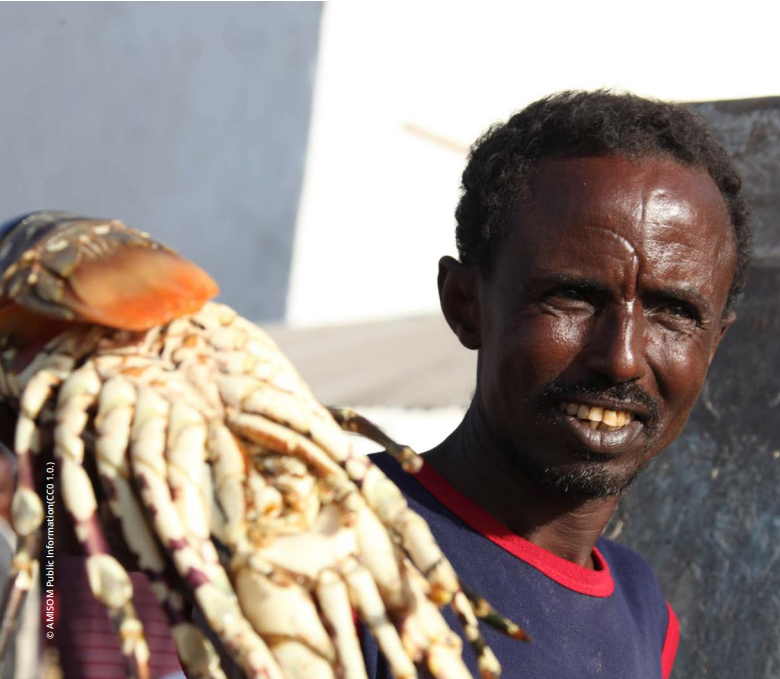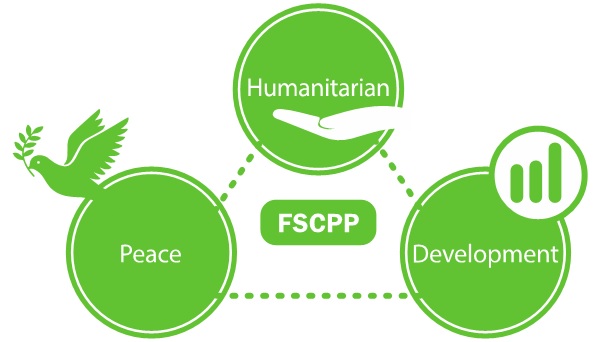Recent Projects
Assessment of the Economic Impact of Land Degradation
 2021-2022 ASH has conducted a two major case studies that assessed ecosystem services provided rangelands in Somalia, in partnership with Economics of Land Degradation Initiative (ELD), University of York (UK) and University of Leeds (UK). The studies first established the extent of land degradation and drivers of recent land use change and then quantifies the impact of these changes on livelihoods of local pastoralist and agropastoralist communities.
2021-2022 ASH has conducted a two major case studies that assessed ecosystem services provided rangelands in Somalia, in partnership with Economics of Land Degradation Initiative (ELD), University of York (UK) and University of Leeds (UK). The studies first established the extent of land degradation and drivers of recent land use change and then quantifies the impact of these changes on livelihoods of local pastoralist and agropastoralist communities.
Findings include ongoing land degradation in the form severe loss of land cover resulting in soil erosion driven by extensive use of rangeland enclosures and overgrazing, the effects of which have been worsened by frequent droughts linked to climate change. Lack of land tenure law and weak community governance systems have resulted in a loss of historical communal grazing rangelands.
The study has made a useful recommendation for more sustainable use practices through government and community action to avert land degradation. It has also supported building capacity in environmental valuation methods for use by local officials, as well as laying the foundation for future research in this area.
For further details, see https://www.eld-initiative.org/en/country-work/africa/somalia
Analysis of Food Demand in a Fragile and Insecure Country
 2021-2022 In collaboration with research from the University of Kent (UK) and London School of Hygiene & Tropical Medicine (UK), ASH has carried out cutting-edge research that for the first time estimated demand elasticities for Somalia, taking account of differences in household type, regional conflict, and income remittances from overseas. The results reveal the extent to which household food consumption, as represented by expenditure, own and cross price elasticities, is highly sensitive to income shocks, especially for animal products such as meat and milk which are the main sources of protein for the population. Furthermore, the impact of an exogenous income shock, affecting food prices and household budgets, will likely result in a less diversified diet because of more emphasis on cereal consumption, especially for nomadic households. The resulting negative macronutrient implications have obvious consequences for levels of malnutrition. As such, improved food security is critical for Somalia’s economic recovery and resilience in the future.
2021-2022 In collaboration with research from the University of Kent (UK) and London School of Hygiene & Tropical Medicine (UK), ASH has carried out cutting-edge research that for the first time estimated demand elasticities for Somalia, taking account of differences in household type, regional conflict, and income remittances from overseas. The results reveal the extent to which household food consumption, as represented by expenditure, own and cross price elasticities, is highly sensitive to income shocks, especially for animal products such as meat and milk which are the main sources of protein for the population. Furthermore, the impact of an exogenous income shock, affecting food prices and household budgets, will likely result in a less diversified diet because of more emphasis on cereal consumption, especially for nomadic households. The resulting negative macronutrient implications have obvious consequences for levels of malnutrition. As such, improved food security is critical for Somalia’s economic recovery and resilience in the future.
For further details see https://www.sciencedirect.com/science/article/abs/pii/S0306919221000713
Food System Assessment
 2021-2022 Dr Mohamud Hashi Hussein, Director of ASH was commissioned by Food and Agriculture Organisation (FAO) as part of a team of international experts asked with to carrying out a food systems assessment. This assessment has highlighted that the Somali economy has historically been and is still largely based on natural resources with endowments of agricultural land, livestock and fisheries. However, there are currently conspicuous structural and institutional constraints to sustainable food systems in Somalia. This assessment has also identified related levers for future policy action to mitigate the situation. In addition to the legacy of three decades of conflict which have destroyed government institutions, Somalia is in the grip of cycles of droughts and floods linked to climate change. Agricultural productivity and output have declined significantly, and the country now relies heavily on food imports largely financed by remittance. The resulting widespread poverty and vulnerability have led to the significant displacement of the rural population, not only creating considerable pressures in urban centres but also resulting in the loss of a stable rural labour force, making the country’s rebuilding and economic recovery even more challenging.
2021-2022 Dr Mohamud Hashi Hussein, Director of ASH was commissioned by Food and Agriculture Organisation (FAO) as part of a team of international experts asked with to carrying out a food systems assessment. This assessment has highlighted that the Somali economy has historically been and is still largely based on natural resources with endowments of agricultural land, livestock and fisheries. However, there are currently conspicuous structural and institutional constraints to sustainable food systems in Somalia. This assessment has also identified related levers for future policy action to mitigate the situation. In addition to the legacy of three decades of conflict which have destroyed government institutions, Somalia is in the grip of cycles of droughts and floods linked to climate change. Agricultural productivity and output have declined significantly, and the country now relies heavily on food imports largely financed by remittance. The resulting widespread poverty and vulnerability have led to the significant displacement of the rural population, not only creating considerable pressures in urban centres but also resulting in the loss of a stable rural labour force, making the country’s rebuilding and economic recovery even more challenging.
 A number of overarching policy levers were proposed for transformative interventions addressing the identified challenges across multiple dimensions of the food systems – agriculture, nutrition and health, environment, infrastructure, education and skills, at both
A number of overarching policy levers were proposed for transformative interventions addressing the identified challenges across multiple dimensions of the food systems – agriculture, nutrition and health, environment, infrastructure, education and skills, at both
regional and national levels. Transforming the food systems by supporting recovery and improving the resilience of traditional livestock and crop production systems is critical in facing the growing challenges from climate change, while at the same time inducing growth through development of agricultural value chains and fisheries to broaden and sustain the growth base and provide greater employment opportunities.
For further details, see
http://surl.li/qkjkbl
Food and Nutrition Security Crisis Preparedness Plan
2023-2024 Dr Mohamud Hashi Hussein was hired by the World Bank as a Senior Consultant supporting the preparation and implementation of Somalia Food and Nutrition Security Crisis Preparedness Plan (FSCPP). This plan has created a new operational framework bringing together government, and humanitarian and development partners to anticipate and respond to extraordinary FNS crises in Somalia.
 Previous coordination mechanisms in the humanitarian and development sectors, including on FNS and food systems, have often been siloed as these arrangements have evolved naturally in line with varying mandates and funding streams in a fragile country context but have historically required limited, if any, leadership from government.
Previous coordination mechanisms in the humanitarian and development sectors, including on FNS and food systems, have often been siloed as these arrangements have evolved naturally in line with varying mandates and funding streams in a fragile country context but have historically required limited, if any, leadership from government.
There has never been a single forum for government to bring together all relevant stakeholders when they are most needed to respond to an FNS crisis. Nor has there been a dedicated process for the Somali government to systematically bring its needs to the attention of relevant global and regional partners that could provide valuable early support to a national FNS crisis response.
The Plan aims to overcome these systemic challenges by mobilizing more consistent, collective, and earlier responses to FNS crises. The Plan adds value by overcoming siloed coordination mechanisms across FGS, FMS, humanitarian, development, and donor partners, and by establishing protocols to convene these partners so that they can make timely joint decisions that promote a comprehensive response at scale. It seeks to mobilize all aspects of aid (holistic support) to achieve objectives that span the humanitarian-development-peace nexus.
For futher details, see:
https://thedocs.worldbank.org/en/doc/3da165e0bcb0ed7dddba9939afb21fda-0590012023/related/Somalia-Preparedness-Plan-for-Food-and-Nutrit-Alejandra-Sofia-Cast.pdf
Contact Us
A leading consultancy firm providing agricultural and analytical services to agriculture and food industry and policymakers in the Horn of Africa
00 252 63 3221141
Offices :
Mogadishu | Hargeisa | London, UK
